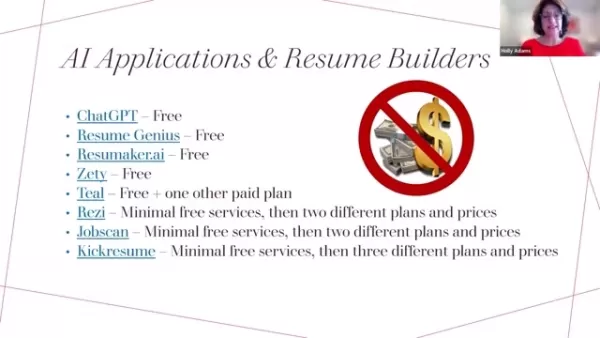AI Revolutionizes Genomics: AlphaGenome Unlocks DNA's Hidden Secrets
While human DNA holds approximately 3 billion genetic letters, scientists have only decoded a fraction of this biological blueprint. The majority of our genome - particularly the non-coding 98% once labeled "junk DNA" - actually contains vital regulatory instructions that determine when and how genes activate. DeepMind's revolutionary AlphaGenome AI model now provides unprecedented capabilities for interpreting these complex genetic control systems.
Deciphering Our Genetic Code
The four nucleotide bases (A, T, C, G) form an intricate language governing cellular function. Context dictates meaning - where a single variation might cause disease in one location while being benign elsewhere. Gene regulation presents additional complexity, with control elements potentially positioned tens of thousands of bases from the genes they regulate. Traditional AI models could only analyze small DNA segments, missing these critical long-range interactions.
AlphaGenome's Technical Breakthrough
A New Standard in Genomic Analysis
AlphaGenome represents a quantum leap in genomic AI, combining three innovative components:
- Convolutional networks identifying key DNA sequence patterns
- Transformer architecture capturing long-range genetic relationships
- Specialized outputs predicting thousands of molecular properties
This architecture achieves unprecedented accuracy while maintaining single-base resolution across sequences up to one million nucleotides long - a capability that previously required supercomputing resources.
Scientific Validation
Rigorous Performance Testing
In comprehensive benchmarking against specialized single-task models:
- Outperformed competitors on 22/24 sequence prediction tasks
- Matched or exceeded performance on 24/26 variant impact evaluations
The model achieves these results while making thousands of simultaneous predictions from raw DNA sequences.
Real-World Applications
Transforming Genetic Research
AlphaGenome enables breakthroughs across multiple scientific domains:
- Medical Genetics: Pinpointing disease-causing mutations in non-coding regions
- Cancer Research: Validated in T-cell leukemia studies identifying MYB binding sites
- Synthetic Biology: Designing precision genetic control elements
Current Limitations
Areas for Future Development
While revolutionary, AlphaGenome has specific constraints:
- Challenges modeling ultra-long-range (>100kb) regulatory interactions
- Limited cell-type specificity in current predictions
- Designed for research applications rather than clinical diagnosis
Access and Availability
Democratizing Genomic AI
DeepMind has made AlphaGenome available through:
- Public API for non-commercial research
- Community forum for knowledge sharing
- Open access to accelerate global scientific discovery
The Future of Genomic AI
Roadmap and Potential
Looking ahead, AlphaGenome may evolve through:
- Expanded species coverage
- Integration with additional biological data types
- Enhanced training methodologies
This technology provides a robust foundation upon which the scientific community can build specialized applications to advance our understanding of genetic regulation and its impact on health and disease.
Responsible Implementation
As with any powerful scientific tool, the research community must apply AlphaGenome thoughtfully, recognizing both its capabilities and current limitations. Proper validation remains essential when applying predictions to critical research questions and experimental designs.
Related article
 Upgrade Your Resume & Cover Letter with AI Technology in 2025
In today's highly competitive 2025 job market, AI-powered tools have become indispensable for creating professional resumes and cover letters that capture recruiters' attention. This guide reveals how to strategically implement AI technologies like C
Upgrade Your Resume & Cover Letter with AI Technology in 2025
In today's highly competitive 2025 job market, AI-powered tools have become indispensable for creating professional resumes and cover letters that capture recruiters' attention. This guide reveals how to strategically implement AI technologies like C
 Elon Musk's Grok AI Seeks Owner's Input Before Tackling Complex Queries
The recently released Grok AI—promoted by Elon Musk as a "maximally truth-seeking" system—has drawn attention for its tendency to consult Musk's public statements before responding to politically sensitive topics. Observers note that when addressing
Elon Musk's Grok AI Seeks Owner's Input Before Tackling Complex Queries
The recently released Grok AI—promoted by Elon Musk as a "maximally truth-seeking" system—has drawn attention for its tendency to consult Musk's public statements before responding to politically sensitive topics. Observers note that when addressing
 8BitDo Unveils Pro 3 Controller Featuring Customizable Swappable Buttons
8BitDo unveils its highly anticipated Pro 3 wireless controller, marking the first major refresh since 2021's Pro 2 model. Departing from recent Nintendo-style layouts seen in the Ultimate 2 controller, the Pro 3 adopts PlayStation's distinctive side
Comments (0)
0/200
8BitDo Unveils Pro 3 Controller Featuring Customizable Swappable Buttons
8BitDo unveils its highly anticipated Pro 3 wireless controller, marking the first major refresh since 2021's Pro 2 model. Departing from recent Nintendo-style layouts seen in the Ultimate 2 controller, the Pro 3 adopts PlayStation's distinctive side
Comments (0)
0/200
While human DNA holds approximately 3 billion genetic letters, scientists have only decoded a fraction of this biological blueprint. The majority of our genome - particularly the non-coding 98% once labeled "junk DNA" - actually contains vital regulatory instructions that determine when and how genes activate. DeepMind's revolutionary AlphaGenome AI model now provides unprecedented capabilities for interpreting these complex genetic control systems.
Deciphering Our Genetic Code
The four nucleotide bases (A, T, C, G) form an intricate language governing cellular function. Context dictates meaning - where a single variation might cause disease in one location while being benign elsewhere. Gene regulation presents additional complexity, with control elements potentially positioned tens of thousands of bases from the genes they regulate. Traditional AI models could only analyze small DNA segments, missing these critical long-range interactions.
AlphaGenome's Technical Breakthrough
A New Standard in Genomic Analysis
AlphaGenome represents a quantum leap in genomic AI, combining three innovative components:
- Convolutional networks identifying key DNA sequence patterns
- Transformer architecture capturing long-range genetic relationships
- Specialized outputs predicting thousands of molecular properties
This architecture achieves unprecedented accuracy while maintaining single-base resolution across sequences up to one million nucleotides long - a capability that previously required supercomputing resources.
Scientific Validation
Rigorous Performance Testing
In comprehensive benchmarking against specialized single-task models:
- Outperformed competitors on 22/24 sequence prediction tasks
- Matched or exceeded performance on 24/26 variant impact evaluations
The model achieves these results while making thousands of simultaneous predictions from raw DNA sequences.
Real-World Applications
Transforming Genetic Research
AlphaGenome enables breakthroughs across multiple scientific domains:
- Medical Genetics: Pinpointing disease-causing mutations in non-coding regions
- Cancer Research: Validated in T-cell leukemia studies identifying MYB binding sites
- Synthetic Biology: Designing precision genetic control elements
Current Limitations
Areas for Future Development
While revolutionary, AlphaGenome has specific constraints:
- Challenges modeling ultra-long-range (>100kb) regulatory interactions
- Limited cell-type specificity in current predictions
- Designed for research applications rather than clinical diagnosis
Access and Availability
Democratizing Genomic AI
DeepMind has made AlphaGenome available through:
- Public API for non-commercial research
- Community forum for knowledge sharing
- Open access to accelerate global scientific discovery
The Future of Genomic AI
Roadmap and Potential
Looking ahead, AlphaGenome may evolve through:
- Expanded species coverage
- Integration with additional biological data types
- Enhanced training methodologies
This technology provides a robust foundation upon which the scientific community can build specialized applications to advance our understanding of genetic regulation and its impact on health and disease.
Responsible Implementation
As with any powerful scientific tool, the research community must apply AlphaGenome thoughtfully, recognizing both its capabilities and current limitations. Proper validation remains essential when applying predictions to critical research questions and experimental designs.
 Upgrade Your Resume & Cover Letter with AI Technology in 2025
In today's highly competitive 2025 job market, AI-powered tools have become indispensable for creating professional resumes and cover letters that capture recruiters' attention. This guide reveals how to strategically implement AI technologies like C
Upgrade Your Resume & Cover Letter with AI Technology in 2025
In today's highly competitive 2025 job market, AI-powered tools have become indispensable for creating professional resumes and cover letters that capture recruiters' attention. This guide reveals how to strategically implement AI technologies like C
 Elon Musk's Grok AI Seeks Owner's Input Before Tackling Complex Queries
The recently released Grok AI—promoted by Elon Musk as a "maximally truth-seeking" system—has drawn attention for its tendency to consult Musk's public statements before responding to politically sensitive topics. Observers note that when addressing
Elon Musk's Grok AI Seeks Owner's Input Before Tackling Complex Queries
The recently released Grok AI—promoted by Elon Musk as a "maximally truth-seeking" system—has drawn attention for its tendency to consult Musk's public statements before responding to politically sensitive topics. Observers note that when addressing
 8BitDo Unveils Pro 3 Controller Featuring Customizable Swappable Buttons
8BitDo unveils its highly anticipated Pro 3 wireless controller, marking the first major refresh since 2021's Pro 2 model. Departing from recent Nintendo-style layouts seen in the Ultimate 2 controller, the Pro 3 adopts PlayStation's distinctive side
8BitDo Unveils Pro 3 Controller Featuring Customizable Swappable Buttons
8BitDo unveils its highly anticipated Pro 3 wireless controller, marking the first major refresh since 2021's Pro 2 model. Departing from recent Nintendo-style layouts seen in the Ultimate 2 controller, the Pro 3 adopts PlayStation's distinctive side





























